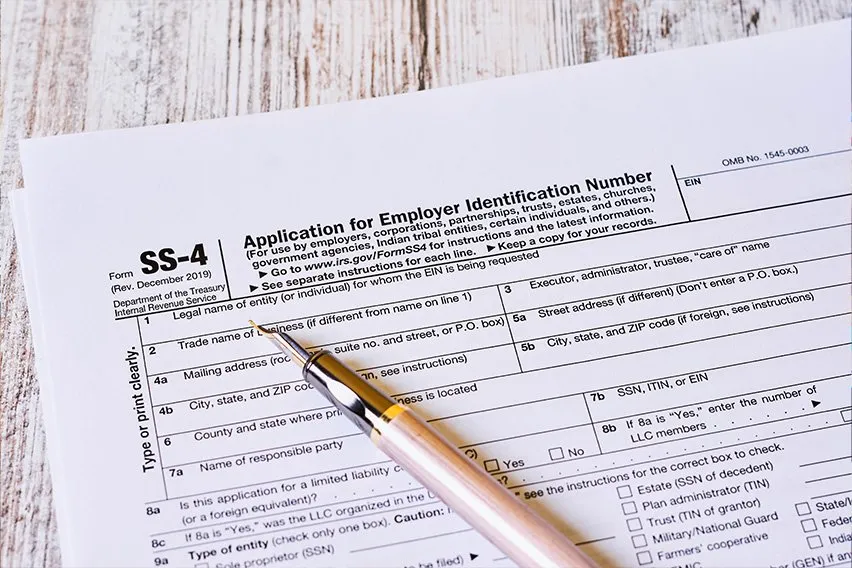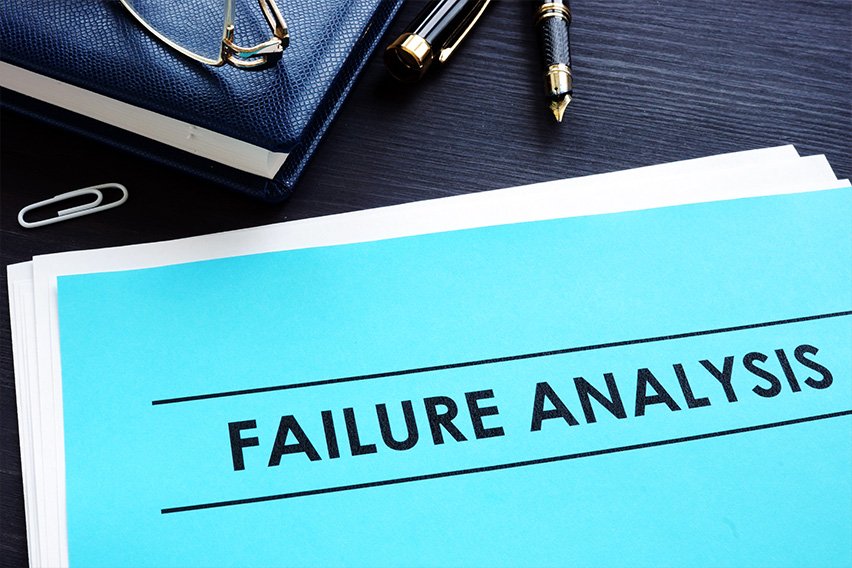EIN (Employer Identification Number): Who Needs It & How To Apply?

Find out what an Employer Identification Number is, whether you need one, and how to apply.
Here’s what we’ll cover:
- What is an Employer Identification Number (EIN)?
- What About State Taxes?
- Do I Need an EIN?
- Wait, Are You Incorporating Your Business?
- How to Apply for an Employer Identification Number
- What if I Lost My Number?
- How Do I Cancel My Employer Identification Number?
- Frequently Asked Questions
Note: FreshBooks Support team members are not certified income tax or accounting professionals and cannot provide advice in these areas, outside of supporting questions about FreshBooks. If you need income tax advice, please contact an accountant in your area.
What Is an Employer Identification Number (EIN)?
An Employer Identification Number (EIN) is a unique tax identifier for companies that do business in the U.S. and is issued by the Internal Revenue Service. Each 9-digit code is unique, doesn’t expire, and is never reissued.
EINs are constructed to the format XX-XXXXXXX and indicate the state in which business entities are registered. The Internal Revenue Service then uses this information to see which employment taxes and other federal taxes you need to pay.
An Employer Identification Number (EIN) is also called a Federal Employer Identification Number (FEIN) or Federal Tax Identification Number.
It’s sometimes referred to as a Taxpayer Identification Number (TIN), but this is really an umbrella term that can apply to several different tax codes, such as the individual tax identification number and adoption tax identification number. Your EIN is specifically for businesses to report employment taxes and federal income taxes.
The Internal Revenue Service (IRS) uses your Employer Identification Number (EIN) to identify your business in the same way your Social Security Number identifies you as an individual taxpayer.

What About State Taxes?
Businesses need an Employer Account Number (EAN) to pay state taxes. The EAN is separate from the EIN tax ID number that you need for federal tax purposes and is issued by your state.
Confusingly, this is often called a state EIN. But if you’re being asked for your EIN without “state” prefixing it, you’re being asked for your federal employer identification number (EIN). If you need a federal Employer Identification Number (EIN), you’re also likely to need a state tax ID number (state EIN) to ensure you meet all your tax obligations.
Do I Need an EIN?
An EIN is for companies that do business in the U.S. or any U.S. territory. It applies to American and foreign-owned businesses trading in the U.S.
You must apply for an EIN if any of the following applies to your business:
- You hire employees, even as a sole proprietorship
- You’re defined as a partnership, LLC, or C-corp
- You file firearms, alcohol, or tobacco tax returns
- You file employment or excise tax returns
- You withhold taxes on income paid, other than wages, to a non-resident alien
- Your business has a Keogh plan
- You’re involved with organizations, including estates, trusts, non-profit organizations, real estate investments, farmers’ cooperatives, or employee plans
The IRS does not require sole proprietorships and freelancers to have an EIN. But there are benefits to having one. For instance, by using an EIN rather than a Social Security Number for your business, you keep your personal and business finances separate. This makes filing taxes easier and protects your personal liability from business debts. You’ll also need an EIN to get a business credit card or open a business bank account.

Wait, Are You Incorporating Your Business?
If you plan to register your business as a corporation (for-profit or non-profit), it’s a good idea to file articles of incorporation with your state before applying for an EIN. One reason is that your business name isn’t guaranteed until your business is registered with the state.
How to Apply for an Employer Identification Number
To apply, fill out IRS Form SS-4 and refer to Form SS-4 Instructions. You can do this by mail, fax, phone or online. It’s completely free and relatively straightforward.
You’ll need all your details ready, including the name and personal tax ID number of the individual making the application, business address, reason for applying, and type of business.
What If I Lost My Number?
If you lose your EIN, don’t panic, it’s on a lot of your business paperwork like:
- IRS notice when you were first issued your EIN
- State permits and licenses
- Tax returns
- Business account or credit applications to financial institutions
- Work done as an independent contractor
- Payments made
If you can’t find it on any of these documents, call the dedicated IRS Business & Specialty Tax Line. You’ll need identifying information to hand when you call so that they can help you.
How Do I Cancel My Employer Identification Number?
You can’t cancel an EIN after it’s been issued to your business. The IRS can close your business account if you receive an EIN but decide later that you do not need the number.

Frequently Asked Questions About EINs
Here are some of the most commonly asked questions about EINs.
Is an EIN the same as a Social Security Number?
An EIN is the business equivalent of a Social Security Number (SSN), but they are not the same. An EIN identifies a business entity doing business in the U.S., whereas an SSN identifies an individual resident in the country. Do not use your EIN in place of your Social Security Number or individual taxpayer identification number (ITIN).
When do I need a new EIN?
You only need to get a new EIN if you change your legal business structure. Other changes—like a new name or location of your business—don’t require a new EIN. Check the IRS website for precise details.
Are any entity types excluded from applying for an EIN online?
No. All legally formed businesses with employees can submit an online EIN application, including sole proprietorships, partnerships and LLCs.
How long will it take to get my EIN?
You’ll get your Employer ID Number immediately if you apply by phone or online. You’ll need to wait 4 weeks for mail applications to be processed and 4 days for faxed EIN applications. Nowadays, most businesses use the online service.
About the author
Janet Berry-Johnson, CPA, is a freelance writer with over a decade of experience working on both the tax and audit sides of an accounting firm. She’s passionate about helping people make sense of complicated tax and accounting topics. Her work has appeared in Business Insider, Forbes, and The New York Times, and on LendingTree, Credit Karma, and Discover, among others. You can learn more about her work at jberryjohnson.com.
RELATED ARTICLES


 Crowdfunding for Business: 17 Best Sites To Get Capital
Crowdfunding for Business: 17 Best Sites To Get Capital How Can Your Small Business Go Green? Sustainability Tips for Startups
How Can Your Small Business Go Green? Sustainability Tips for Startups 12 Legal Requirements for Starting a Small Business
12 Legal Requirements for Starting a Small Business 10 Best Home-Based Business Opportunities in 2024
10 Best Home-Based Business Opportunities in 2024 5 Creative Ways to Make Money. Turning Your Imagination into Dollars.
5 Creative Ways to Make Money. Turning Your Imagination into Dollars. 20 Reasons Why Small Businesses Fail And How To Avoid Them
20 Reasons Why Small Businesses Fail And How To Avoid Them